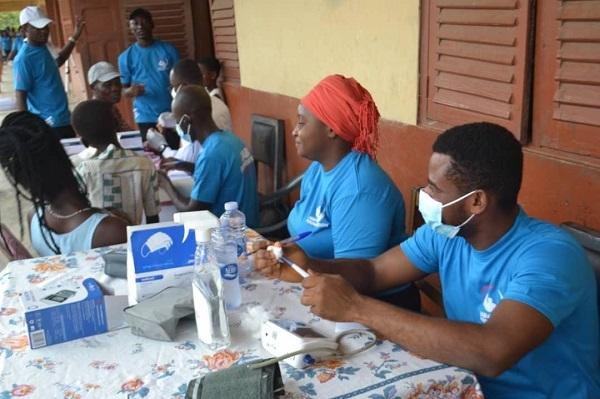News
Pay attention to health of prisoners’

Some members of the public being screened
The government has been urged to pay more attention to the health of prisoners as the absence of that could pose public health risk in the society.
Founder of Jabi Foundation, a non-governmental organisation, Ms Mary Yaa Wujiti, cautioned; “If we neglect the prisoners, remember the officers manning there will pick up infections and bring it to their dependents and the general community; the churches, mosques, market, school which is why we must prioritise their health.”
She shared the advice in an interview with The Spectator when her organisation in collaboration with LAMACONSULT, a conflict resolution focused NGO, organised a free health screening for inmates and officers of the Ankaful Maximum Prison in the Central region.
In all, about 400 individuals were screened for conditions including blood pressure, sugar, malaria, ear, nose, and throat (ENT) as well as eye complications with essential medications, eye glasses and assorted food items also donated to the facility.
Ms Wujiti said that one of the key values of Jabi Foundation was empathy which was its major drive to reach out to inmates and bring healthcare to their doorsteps.
“Since prisons is one neglected area in our society, we thought of bringing healthcare to their doorstep to put a smile on their face.”
Ms Wujiti, also an Ophthalmic Nurse, observed that due to overcrowding in the cells, most of the inmates had skin infections, some of which were communicable with others, particularly elderly inmates suffering blurred vision.
“Others complained of body aches, had nutritional deficits, among others so we appeal to the government, NGOs and the general public to support the healthcare systems in the prisons by providing them with medications, consumables and other necessary equipment to promote their wellbeing.”
She further encouraged members of the public to undertake an eye test at least once a year because, “blinding eye conditions are very silent, they don’t come with pain but before you realise you are blind.”
By Abigail Annoh